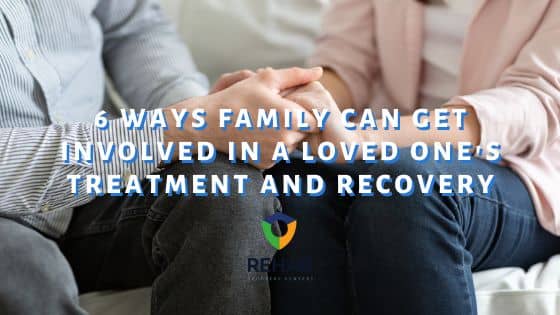Table of Contents
Addiction impacts every aspect of a person’s life, including their relationships. If you love someone who lives with substance abuse or addiction, it’s likely you understand the anxiety, frustration, sadness, and guilt that are common to family members of addicted people.
Family involvement can be critical in an addicted person’s success in recovery. Family members can provide love, understanding, boundaries, and emotional and practical support that may be essential to their loved one during treatment and recovery.
The benefits of family involvement in addiction treatment are clear. We have put together a guide for people navigating the emotional, life-saving process of supporting an addicted loved one in their recovery.
If you have a family member or loved one who lives with addiction, reach out to the specialists at Rehab Recovery Centers for more information about starting treatment.
The Benefits of Family Involvement in Treatment and Recovery
Deciding to get treatment for substance abuse or addiction is a life-changing choice. Going through treatment can be emotionally and physically challenging, and people often require a lot of emotional, physical, and practical support at this time. Without support, people may be unable to complete treatment or stay committed to lifelong sobriety.
Family involvement in treatment and recovery is critical. Some of the benefits of having family members involved in addiction treatment include:
- Staying motivated to complete treatment
- Fewer feelings of anger, confusion, or resentment toward the addicted person
- Better communication between family members
- Opportunity to identify and heal destructive beliefs, roles, or patterns in the family system
- A clear understanding of what to expect from treatment and recovery among family members
Addiction does not only affect the one who lives with it. You need to get the support you need to keep showing up for your loved ones. By offering support and getting the help you need to navigate your loved one’s addiction, you can create a healthier environment for your family.
Ways Families Can Get Involved in a Loved One’s Treatment and Recovery
You can do some concrete things to support a loved one during addiction treatment and recovery, both during and after treatment.
1. Family therapy
Many treatment facilities incorporate family therapy into their programs. You may have the opportunity to attend family therapy sessions while your loved one is in treatment, or you may work with a therapist in your community afterward. Family therapy is a crucial aspect of your loved one’s healing from addiction and can improve the health of the entire family system.
2. Learn about addiction and recovery
The more you understand about addiction, treatment, and recovery, the better able you’ll be to offer empathetic, non-judgmental support to your loved one as they begin to heal from their addiction. Read books, talk to an addiction counselor or sponsor, and attend 12-step meetings for family members of addicted people.
3. Visit
If you are allowed to visit regularly while your loved one is in treatment, take this opportunity. A visit from a supportive family member can help keep your loved one motivated and encouraged. Treatment can be very challenging. Maintaining a connection with your loved one is important so they know they have constant, loving support when things get difficult.
4. Stay in touch
If you are unable to visit your loved one or the facility doesn’t allow it, reach out in other ways. Send emails frequently, call your loved one, or send letters or care packages. Be aware that the facility may monitor mail or restrict specific items from being sent. Keep reaching out to your loved one to assure them you are invested in their recovery.
5. Attend appointments
The early days of treatment and recovery can be overwhelming. Your loved one may experience physical or emotional discomfort that prevents them from absorbing important information during meetings and appointments. If your loved one agrees to it, attend important appointments and write down essential information for them to refer to later.
6. Practical support
In many cases, people who require addiction treatment need to get help quickly. You can offer practical support to help them manage aspects of their daily life so they can focus on getting the help they need. This may include things like:
- Arranging medical appointments or evaluations
- Navigating insurance or payment plans
- Assisting with child or pet care
- Collecting mail, mowing the lawn, and performing other home-related tasks
- Giving rides to appointments or meetings
Recovery from addiction is not a final destination; it’s a lifelong process. People in recovery require both practical and emotional support for a long time. Practice good self-care so that you can continue to be a steady, supportive presence for your loved one.
Get Help Now
If you or someone you love requires addiction treatment, reach out to the specialists at Rehab Recovery Centers to be connected to the programs and professionals you need.
Get Help Today
Don’t go through the process of recovery alone. There are people who can help you with the struggle you’re facing. Get in touch with one today.


